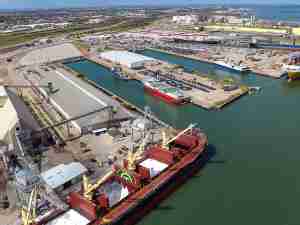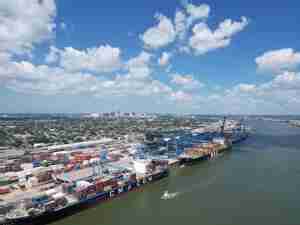In March 2020, Flinders Port Holdings (Flinders) ordered an eco-efficient Konecranes Gottwald Model 6 Mobile Harbor Crane for their subsidiary Flinders Logistics at Port Adelaide in South Australia. With delivery planned for August 2020, the crane will increase capacity in bulk materials and cargo handling services.

Flinders Logistics is a logistics and stevedoring services company focused on the mineral resources and oil and gas sectors in Australia. The company is based in Adelaide, the main maritime gateway and capital of the state of South Australia. Since 2011, Flinders Logistics has been operating 100t Konecranes Gottwald Mobile Harbor Cranes to load bulk cargo vessels with mineral products and heavy project cargo, including tandem lifts. As Flinders’ business grew, they wanted to ensure that they could maintain the quality of their stevedoring services with an additional crane. . Having operated the cranes for many years Flinders chose Konecranes to provide an additional eco-efficient
Model 6 crane.
“As the purchasing officer, I’ve had the pleasure of working with Konecranes since the Flinders Group bought their very first harbor crane in 2011,” says Shane Haywood, Inventory Specialist at Flinders Port Holdings. “The team at Konecranes has always been supportive and responsive to our needs and provides additional services like annual maintenance inspections. We look forward to the arrival of our third machine and to developing our relationship further.”
The new crane will be a Konecranes Gottwald Model 6 Mobile Harbor Crane in the G HMK 6407 two-rope variant. With a maximum working radius of 51 meters and a maximum lifting capacity of 100 t, it can be used with vessels up to post-Panamax and Capesize Bulker classes. The crane will be mostly loading mineral concentrate, tipped into the ship’s hold from special low-profile bulk containers lifted by a rotating spreader unit attached to the crane. Smart crane features prevent accidental discharge of the bulk material over the wharf. Working together, this system minimizes environmental impact by greatly reducing dust and spillage. In addition, the crane supports an external power supply, reducing its environmental impact even further and helping to maintain ISO 14001 environmental management certification.










